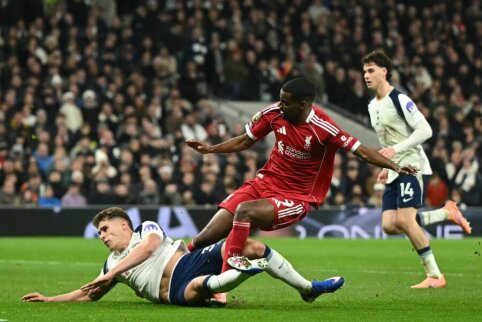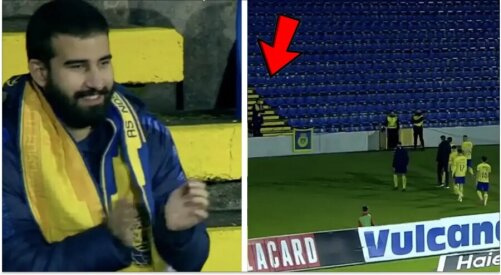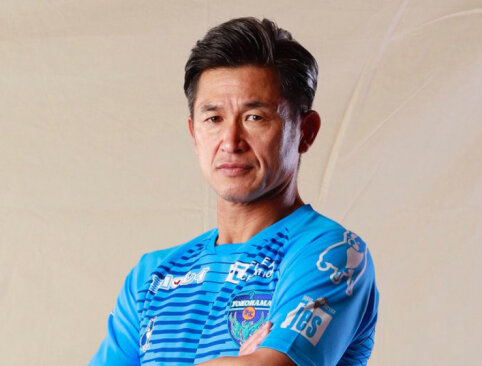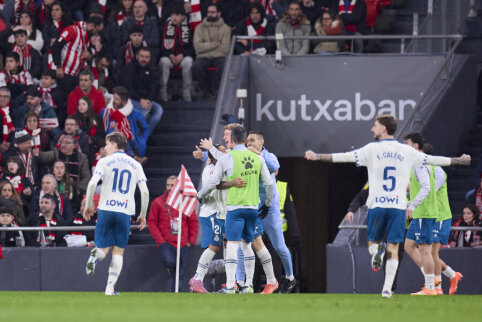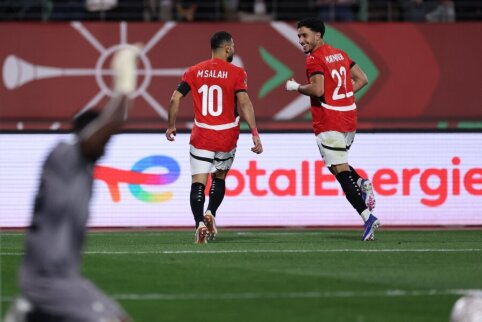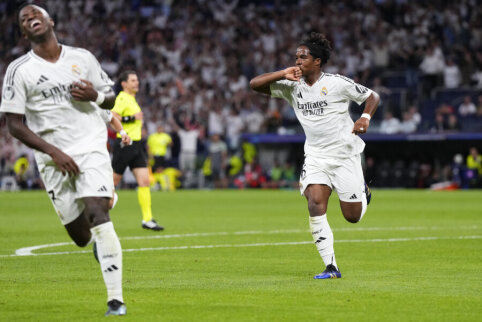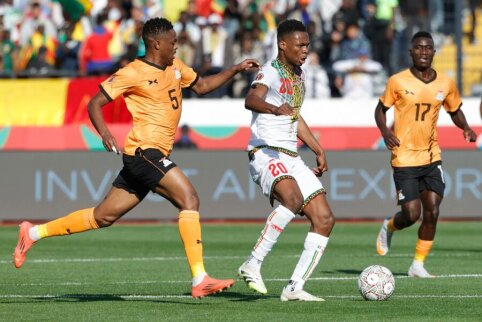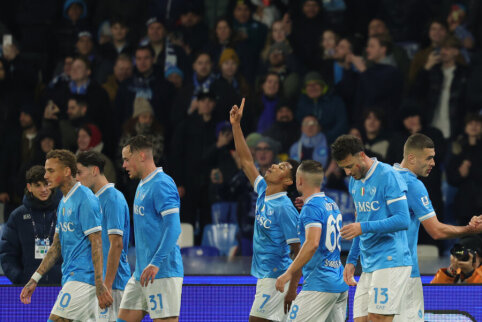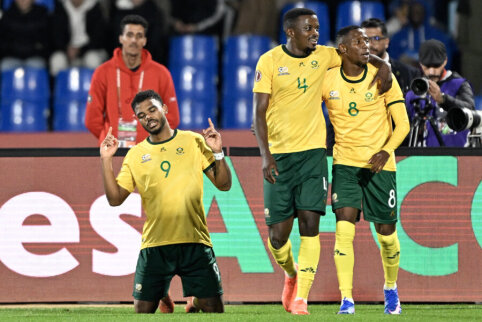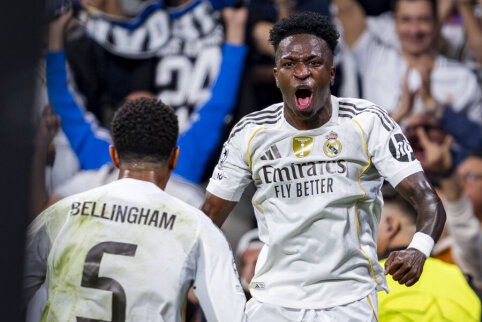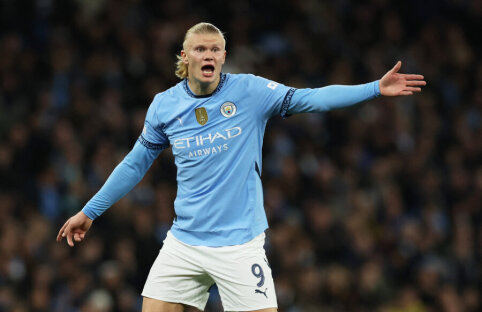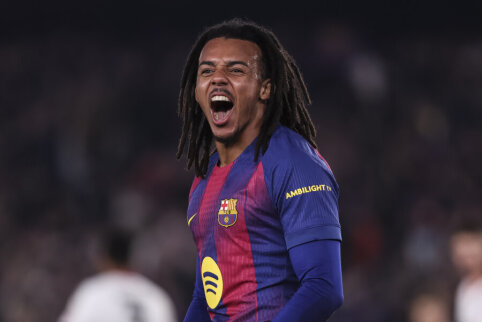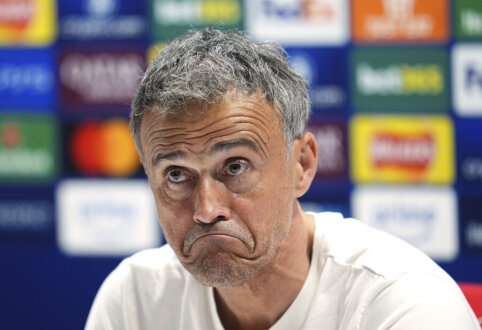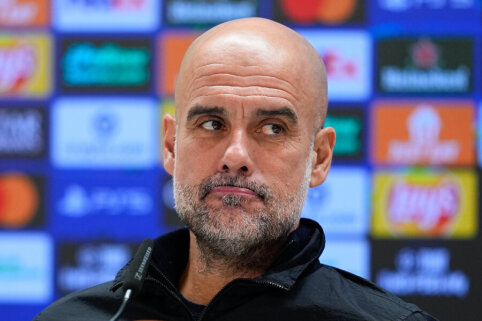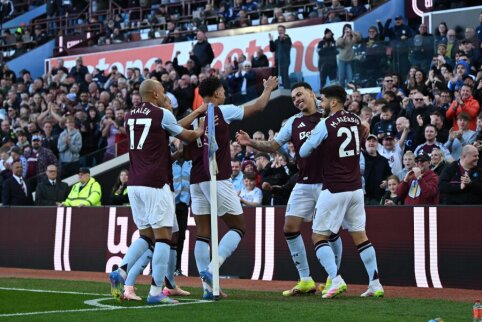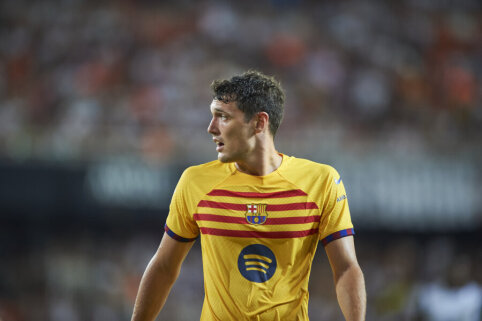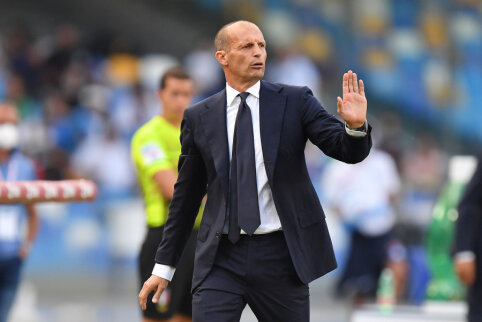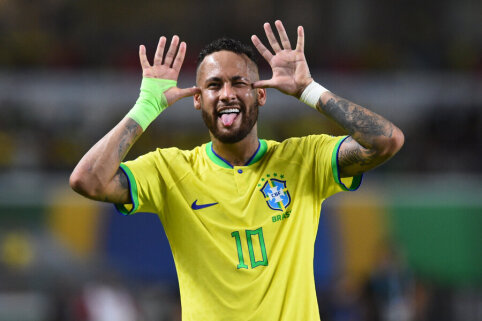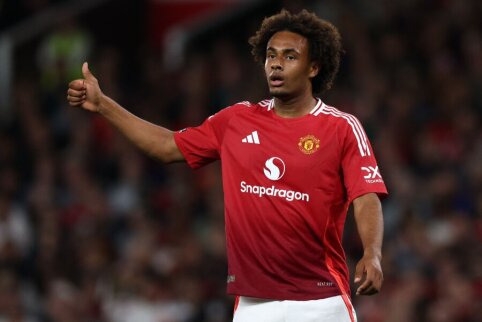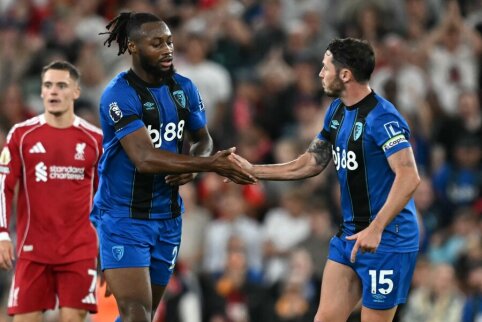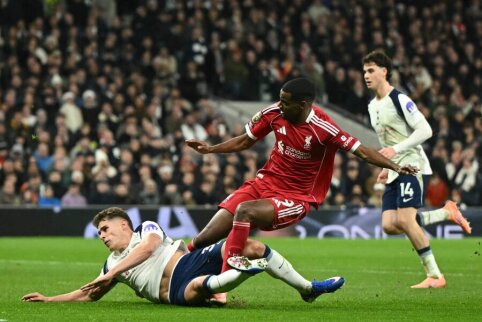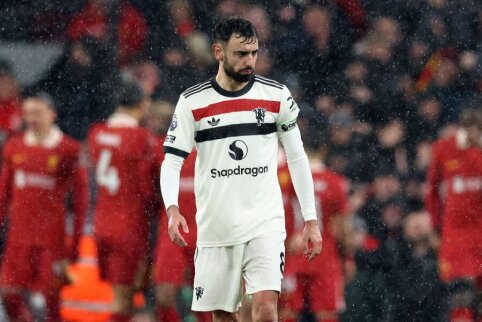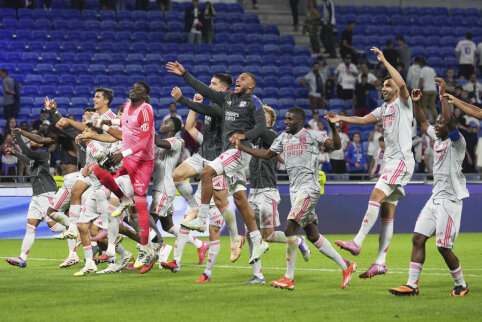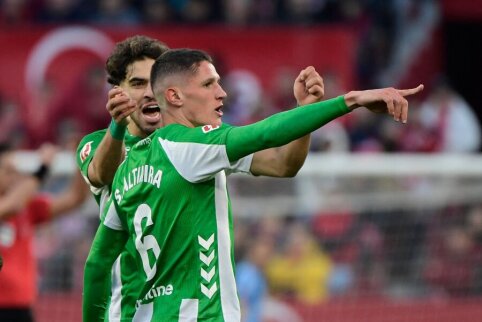 © EuroFootball.com
© EuroFootball.com
After calming down after the Champions League final, EuroFootball.com offers to remember the history of the tournament. Almost three decades ago, during the dominance of English clubs in the European Champions Cup, another team intervened between the legendary "Nottingham Forest" and "Liverpool" - Birmingham's "Aston Villa". In 1982, "Aston Villa" achieved such success that the current team's manager Martin O'Neill can only dream of. Twenty-five years after the club's triumph, we present an article by interviewing stars of the team that shook Europe in a conversation with a journalist from "Champions" magazine. Smelly fish factories, barking dogs, and giant thighs The pungent aroma of Icelandic fish factories, intimidating Berlin Wall guards, an unmasked KGB appearance in the former Soviet Union, and an accidentally scored winning goal in the final - Aston Villa's journey to the 1982 Champions title was often dangerous but somewhat coincided with the club's not-so-charming image. The sharp compliments the Tony Barton's team received from the English press after their 1-0 victory against "Bayern Munich" in Rotterdam were simply a faint echo of their success in the country's championship. "It partly happened because Ron Saunders, who coached our team in the 1980/81 season, refused to meet with journalists," former forward Peter Withe said - "He was like Alf Ramsey - a 'players' coach who didn't talk much to the media and called football journalists the London mafia. This created a 'us-vs-them' situation, which was great for team spirit but not promising for successful media relations. Another thing - hardly in the nineties could Birmingham be called charming." Indeed - in 1981, the country's unemployment rate rose to 2.6 million, which had a negative impact on many districts of Birmingham, and that summer the so-called Handsworth riots erupted. In fact, the only more charming player in the "Villa" team was England youth team striker Gary Shaw, who was predicted to have an important place in the English national team. "Gary was playing very well at that time. He could deceive defenders more successfully than any other player in the country," says Withe. There was also former "Preston" and "Burnley" full-back Tony Morley, who terrorized defenses throughout Europe and secured a place in the England national team in the 1981/82 season. The rest of the team consisted of hard-working midfielders, including Des Bremner, influential captain Dennis Mortimer, sturdy Scottish defenders Allan Evans and Ken McNaught, as well as physical striker Withe. Before the successful season, former "Wolves" and "Nottingham Forest" player admitted: "Ron Saunders hired me to do the dirty work. The "Villa" team needed that physical strength. Saunders always reiterated that for the team to achieve victories, it needed a powerful defensive spine. According to Morley, it was a sort of eye-glazing: "Saunders was a cunning guy because looking at our defensive spine, you could see that full-backs Kenny Swain and Gary Williams played more like full-backs and often sported forward, while Allan Evans sometimes played as a striker. Also, "Sid" Cowans was a truly talented player who managed to break through the opponents' defense with excellent passes. That team was something more than just English toughness. Frankly, we thought we had enough talent to play against anyone." The bearded captain Mortimer's energy was one of the reasons for Villa's success. "Dennis was incomparable at that time," says Withe - "He could convince everyone, sometimes give hell if needed, and help the youth." Shaw also spoke passionately about the team spirit: "Dennis was confident that we could perform successfully in the European Champions Cup and that sober confidence in our abilities transferred to the whole team. There were no real stars. I remember the 'gem' Tony Morley scored against Everton's goal, but no one told him how wonderful he was or anything like that. That just wasn't our way." Speaking before his death in 1993, Tony Barton also said a lot, who took over the coaching position from Saunders in the middle of the season: "It should be remembered that four years before our Champions Cup victory, 'Liverpool' and 'Forest' won the cup twice. Looking at their support and finances, you can see that Forest was a smaller club than us, but with an exceptional coach and a great team, they surpassed themselves. Clough's guys inspired us. At that time, there was a feeling that English clubs in the cup competitions were simply unbeatable. The bigger clubs usually easily reached the second stage. Although I respect the teams that are champions of their countries, I must say that the first stage was just an easy tournament prologue." Since only one team played from even the strongest European leagues, the tournament was more like a league battle. "At that time, there certainly wasn't the money there is now. Progressing to the next stage didn't have a significant impact on the club's finances, but I think there was more hidden threat among the opponents," says Tony Morley. The "Villa" team also faced rivals from the East in the Old Continent matches - Berlin "Dynamo" and Kiev "Dynamo" clubs, both of which were dangerous opponents. "Most British teams were afraid to travel behind the iron curtain because after a while it became a psychological problem," recalls Gary Shaw - "It was not easy to find out about their teams, and it was hard for scouts to go to the East to watch their matches. So when we met Kiev 'Dynamo,' we knew about Oleg Blokhin (current coach of the Ukrainian national team - ed.), but didn't know much about his team mates." Moreover, since many South American stars stayed in Brazil and Argentina, as European clubs did not have much money and could not attract them, the trend of "snatching the world's biggest talents," as Withe puts it, was not prevailing. "Although it's strange, the UEFA Cup tournament in some aspects was considered even a bit tougher. That was because in later stages you could face second, third, fourth teams from countries like Italy or Spain, and there were more matches," says a former player. As the "Villa" prepared for battles in Europe, the players knew that three opponents appeared more threatening than others. "Juventus," with players like Marco Tardelli and Dino Zoff, who later won the World Cup in 1982, seemed hard to beat. No less difficult seemed the travelers like Karl-Heinz Rummenigge or Paul Breitner of the Munich "Bayern." Well, of course, the title defenders "Liverpool," with whom "Villa" could clash. However, Tony Morley claims that "at that time we were the English champions, and nothing scared us. Also, at that time, foreigners were afraid of the English." The draw paired "Villa" with Reykjavik's "Valur" club in the first round and allowed the players to fly to the away game to see the impressive volcanic scenery. "It seemed like we were landing on the moon. The view was extraordinary," recalls Shaw. The English team crushed their opponents 5-0 at their "Villa Park" stadium, but only about 20,000 spectators attended the match, which angered Saunders: "If fans don't care to come to see us, then they don't deserve to see a high-level team." Apart from opponents, the "Villa" players also had to overcome the weather and fish. "In the matches, we had to wear long sleeves because the weather was very cold and icy wind was raging in their not very large stadium," remembers Gordon Cowans. "There was also a repulsive smell coming from a nearby fish factory," Shaw added - "One of our training sessions was interrupted because the smell began to make some guys sick. It was awful." However, two goals by Shaw allowed "Villa" to advance to the next stage without difficulty. In the other pair, "Liverpool" crushed the Finnish champions "Oulu" 8-0. But in the second round, the fates decided to match "Villa" against the Berlin "Dynamo" team, and Dennis Mortimer, who had already gone beyond the iron curtain with "Coventry" in the "Fairs" Cup, warned the players to expect poor conditions. "For me personally, it was extremely interesting. We were in a store that seemed really old and dusty, and the whole atmosphere was just gray. It really opened my eyes," says Morley. The punishment didn't prevent "Villa" from playing in a goalless draw, but the opponent's leader Blokhin was stopped from showing off rare opportunities to receive one of the club's rookies, Andy Blair. A 2-0 victory at home after two weeks allowed Villa's players to step into the semi-finals, and the achievement became even more impressive due to the fact that Liverpool unexpectedly dropped out after a failure against the Bulgarian champion Sofia's "CSKA." In the first semi-final match in Birmingham, a goal by Tony Morley gave the victory to the "Villa" team and an advantage before the return match against the Belgian champion Brussels's "Anderlecht." However, ahead of the match in Brussels, fans of the two teams began to clash. "We arrived at the stadium, and you could smell the trouble. The distance between the fans was ridiculous, and there was an unpleasant sight behind both goals - security forces ready to stop riots with their shiny shields." The match was stopped for six minutes because a "Villa" fan stormed onto the field and claimed that he did so to avoid clashes in the stands. "Villa" managed to endure, and the match ended goalless, but the "Anderlecht" representatives filed an official complaint to UEFA demanding a rematch. "I got a little nervous because due to the English fans' reputation, it could happen that we would have been kicked out," says Morley. However, that did not happen, and in the final, on May 26, 1982, at Feyenoord Stadium in Rotterdam, Aston Villa met Bayern Munich. "The pressure burdened the Bayern team. We greatly respected Breitner, Augenthaler, and Rummenigge, but we believed we could perform successfully. We had confidence in our abilities. Some guys were taking pictures or talking to their families, and Tony Morley tried to get tickets for his friends," said Gary Shaw. The match was not impressive, and in the ninth minute, Barton was forced to substitute a player and send new 23-year-old Nigel Spink to the field instead of the injured goalkeeper Jimmy Rimmer, who had played only one match at the club in five years. For a long time, the "Villa" team had to withstand Bayern's attacks, and the English club's players themselves failed to even shoot at the goal, and fatigue began to follow their strengths. "Some got tired because they had put on new shoes that rubbed blisters, and in general, a long season was felt," Morley reflected. However, in the 67th minute, he received the ball, deceived Bayern's defender Weiner in the penalty area, made a pass in the center. Following the final whistle, the "Villa" team triumphed. "I thought `how could all this happen?`. It was indescribable. It is the only thing I have won as a coach, but if you win the 'gold cup', winning the biggest is the best," said Barton. Each "Villa" player received bonuses of £2,760 for the triumph in Rotterdam, while Bayern players, according to rumors, could receive about four times more. However, it must be admitted that the club not only failed to use its success but players who achieved it were not properly honored. Only Allan Evans and Peter Withe played in the World Cup held that summer. Meanwhile, Tony Morley, who was already invited to the national team that season, not making it into the team shocked him: "I felt that it was my time. But Ron Greenwood chose experience and took a risk due to Keegan and Brooking's form. It was his decision, but I was very disappointed." Gary Shaw, who had not traveled to Spain despite his successful performance in the youth team, was also disappointed. "I felt that after the last two seasons, I deserved a place," he says. "It's unbelievable that Douglas Ellis (former "Villa" owner, who sold the club to American Randy Lerner in 2006) never recognized what the 'Villa' team had achieved. Imagine if we were talking about 'Arsenal' or 'Tottenham,' it would never end. Perhaps because he wasn't in the club at that time," says one former team player. Seven from the legendary "Villa" team still live in Birmingham and maintain close ties. "Sometimes you think if it really happened. Then you look at the medal, read `Aston Villa - 1982 European champions,' and realize what you have achieved." [Aston Villa - Peter Withe Vs Bayern 1982 Euro Cup](http://media.putfile.com/Aston-Villa---Peter-Withe-Vs-Bayern-1982-Euro-Cup)
